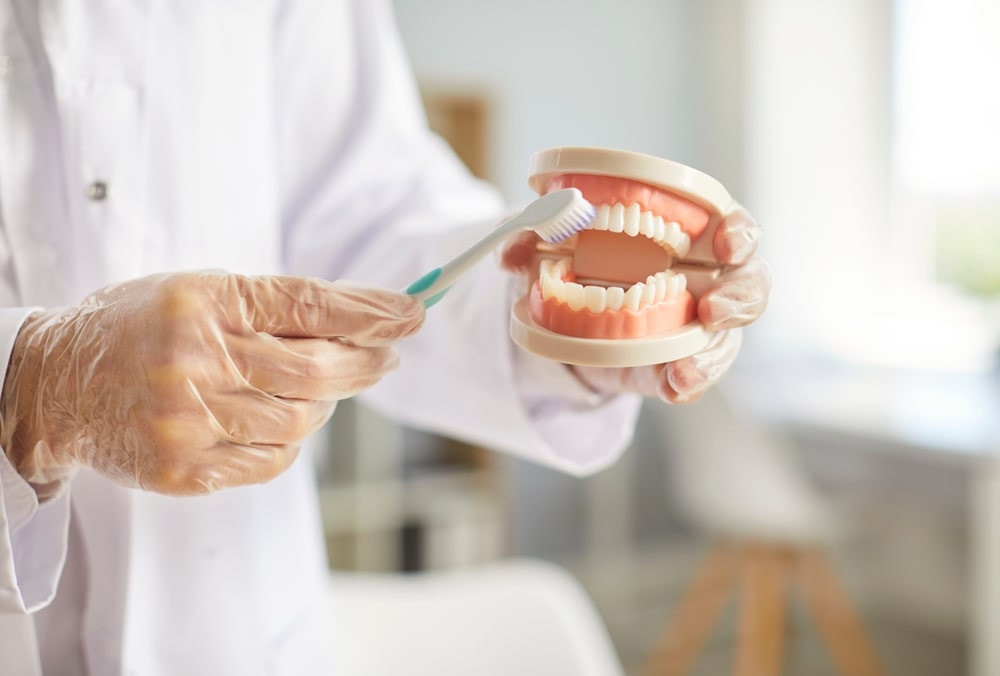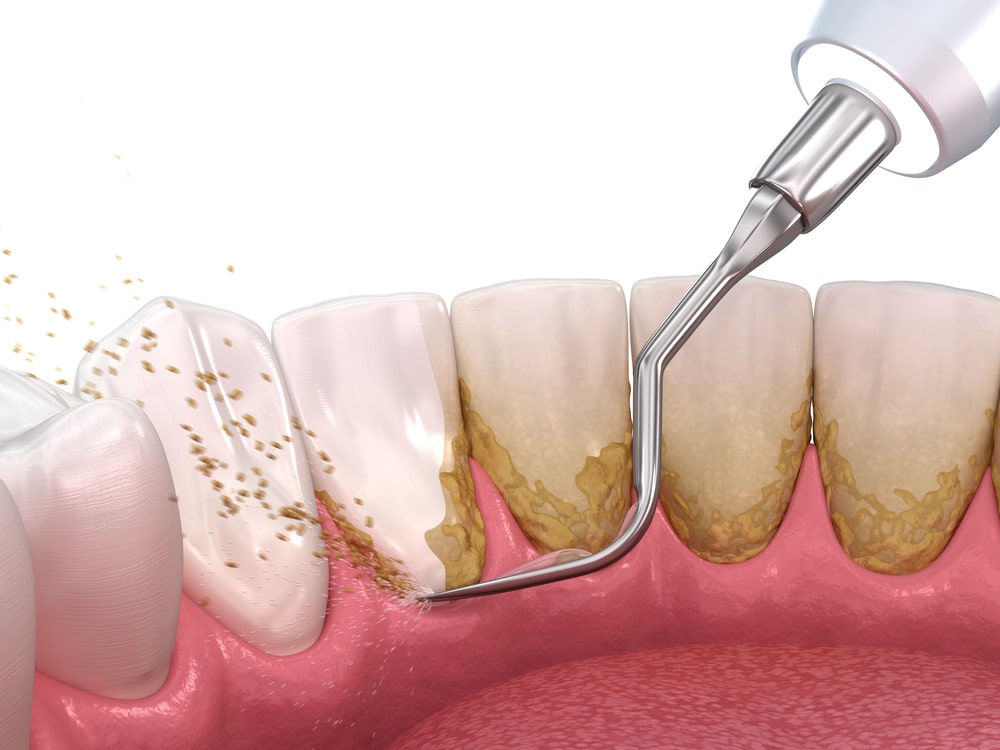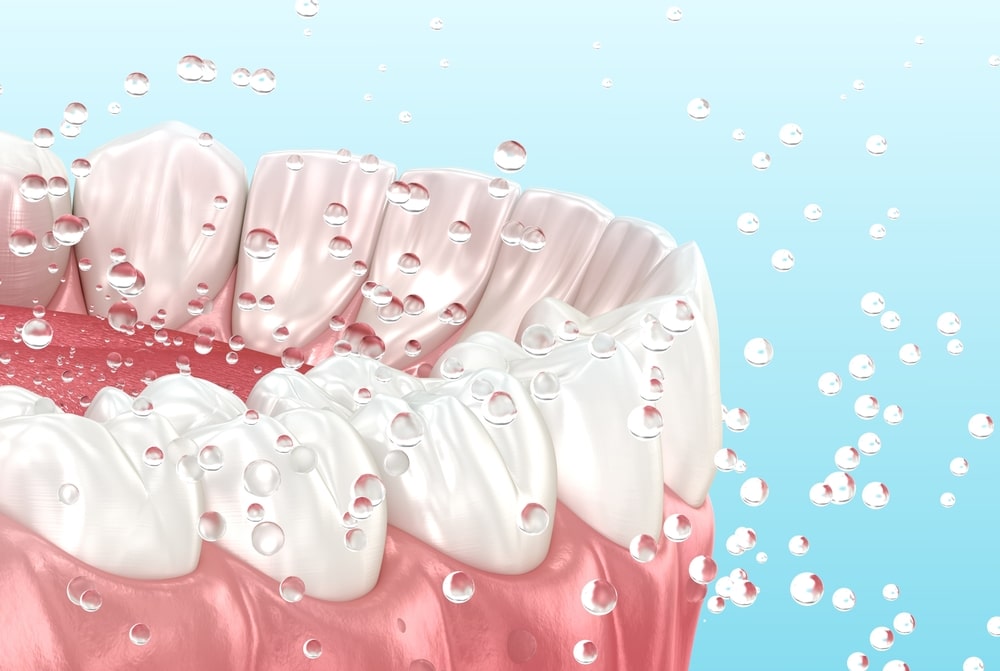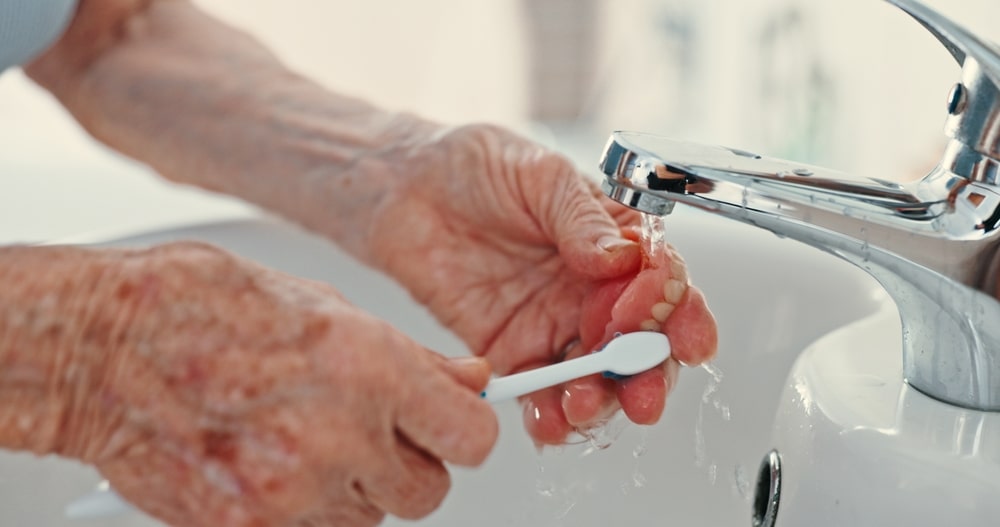Imagine looking in the mirror and seeing a vibrant, confident smile, knowing that every aspect of your oral health is perfectly aligned. For many, that confidence comes from dentures – remarkable tools that restore functionality and aesthetics. But here’s a little secret: dentures, just like natural teeth, require consistent, thoughtful care. And it’s more than just keeping them looking good; it’s about safeguarding your overall health, preventing embarrassing odors, and ensuring your comfort every single day. You might think denture care is complicated, or perhaps you’ve heard conflicting advice. The truth is, establishing a simple, effective routine is easier than you think.
This guide will walk you through everything you need to know, transforming casual cleaning into a powerful habit that protects your health and keeps your smile shining brightly.
Why Denture Care is Non-Negotiable: Beyond Just Aesthetics
When you think about cleaning your dentures, the first thing that often comes to mind is preventing stains.
While that’s certainly important for a sparkling smile, the benefits of proper denture hygiene run much deeper.
Here’s the “aha!” moment: Your dentures are not just inert plastic; they are living environments for bacteria and fungi. Over time, these microscopic invaders can form a sticky film called plaque, much like they do on natural teeth. If left uncleaned, this plaque can lead to a host of problems:
- Bad Breath (Halitosis): The most common and often embarrassing issue. Bacteria thrive on food particles and produce foul-smelling gases.
- Oral Infections: Poorly cleaned dentures can harbor Candida yeast, leading to a condition known as denture stomatitis (redness and inflammation under the dentures). These infections can cause discomfort and even spread to other parts of your mouth.
- Gum Irritation and Disease: Even if you have full dentures, your gums still need attention. Bacteria from neglected dentures can irritate the gum tissue, potentially leading to inflammation and discomfort, especially for those with sensitive gums or remaining natural teeth.
- Damage to Remaining Natural Teeth (for Partial Dentures): For those with partial dentures, the clasps and base can trap food particles around natural teeth, increasing the risk of cavities and gum disease on your existing dentition.
- Systemic Health Links: Emerging research suggests a connection between poor oral hygiene and broader health issues. While more studies are needed specifically on dentures, maintaining good oral health generally contributes to overall well-being.
The Canadian Dental Association (CDA) emphasizes that good oral hygiene is essential not just for the dentures themselves, but also for the underlying tissues and any remaining natural teeth.
Neglecting this care can compromise your oral health and, by extension, your general health.
Your Daily Denture Cleaning Routine: Step-by-Step for Success
A consistent daily routine is your best defense against stains, odors, and infections. Think of it as a few simple steps that add up to significant health benefits.
1. Rinse, Rinse, Rinse! (After Every Meal)
Just as you might rinse your mouth after eating, do the same for your dentures. A quick rinse under running water after every meal helps remove loose food particles before they can become stuck or provide a feast for bacteria.
This simple habit makes your deeper cleaning much more effective.
2. Brush Them Gently (Daily Deep Clean)
This is a crucial step for removing food particles, plaque, and stubborn debris.
- Before you begin: Fill your sink with water or place a towel on the counter. This way, if you accidentally drop your dentures, they won’t break.
- Use the Right Brush: Never use a regular toothbrush with stiff bristles. These are too abrasive and can scratch the denture surface, creating tiny crevices where bacteria can hide and stains can embed. Instead, opt for a specially designed denture brush, which has softer, larger bristles, or a soft-bristled toothbrush.
- Choose the Right Cleanser: Avoid regular toothpaste. Most toothpastes are abrasive and can scratch dentures, just like a stiff brush. Use a non-abrasive denture paste, mild hand soap, or a specifically formulated denture cleanser. The American Dental Association (ADA) recommends using a cleanser specifically designed for dentures.
- Technique for Full Dentures: Gently brush all surfaces of the denture – the chewing surfaces, the outer surfaces that show when you smile, and especially the inner surface that rests against your gums.
- Technique for Partial Dentures (including metal clasps): Be extra careful around the metal clasps. Brush gently to remove food debris without bending or damaging the clasps, which are vital for the denture’s fit.
3. Soak Them Overnight (Or for Recommended Time)
Soaking is vital for deep cleaning and keeping your dentures moist. Drying out can cause them to warp or lose their fit.
- Why soak? Soaking helps remove plaque, stains, and kills bacteria that brushing alone might miss. It also prevents the dentures from drying out and changing shape.
- Use an Approved Solution: The Mayo Clinic advises soaking dentures in a denture cleanser solution (following manufacturer’s instructions) or in plain water overnight. Make sure the solution you choose is suitable for your specific type of dentures.
- Effervescent Tablets: Many people find effervescent (fizzing) cleaning tablets very effective. These dissolve in water and release cleaning agents that target bacteria and stains.
- Important Note: Always rinse dentures thoroughly with water after soaking, especially if using a chemical soaking solution, before placing them back in your mouth. This helps remove any residual cleanser that could irritate your gums.
4. Store Them Properly
When not in your mouth, dentures need a safe home.
- Dedicated Case: Use a clean, dedicated denture storage case.
- Keep Them Moist: Always store them in water or a denture soaking solution to prevent them from drying out and losing their shape.
5. Don’t Forget Your Mouth!
Your gums, tongue, and any remaining natural teeth still need daily care.
- Clean Your Gums and Tongue: While your dentures are out, gently brush your gums, tongue, and the roof of your mouth with a soft-bristled toothbrush or a soft cloth. This removes plaque, stimulates circulation, and keeps your mouth feeling fresh.
- Care for Remaining Natural Teeth: If you wear partial dentures, maintaining excellent hygiene for your natural teeth is paramount. Brush twice daily and floss once a day, just as recommended by your dental professional.
- Rinse with an Antiseptic Mouthwash: A quick rinse can help reduce bacteria and keep your breath fresh.
Preventing Common Denture Dilemmas: Stains, Odors, and Infections
Beyond the daily routine, understanding the specific causes and prevention methods for common denture problems can save you a lot of hassle and discomfort.
Tackling Stubborn Stains: What Works and What Doesn’t
Stains are often caused by dark-colored foods and drinks (coffee, tea, red wine), as well as tobacco products.
- Prevention is Key: Regular rinsing and daily brushing are your first line of defense.
- Denture Cleansers: Soaking in an effervescent denture cleanser designed for stain removal can be very effective. Look for products with the ADA Seal of Acceptance.
- Avoid Harsh Abrasives: Do not use bleach, abrasive cleaners, or household chemicals. These can damage your dentures, weaken the material, and even change their color.
- DIY Methods (Use with Caution!): While some people use diluted vinegar or baking soda solutions, dental professionals often advise caution. Vinegar is acidic and can erode denture surfaces over time, especially acrylic. Baking soda, while less abrasive than toothpaste, can still be too coarse for daily use on some denture materials. Always consult your dentist before trying these methods.
- Professional Cleaning: For very stubborn stains, your dental professional can perform a specialized deep clean.
Banishing Bad Breath: The Odor Connection
Persistent bad breath from dentures is almost always a sign of bacterial or fungal accumulation.
- Thorough Cleaning: The solution is a meticulous daily routine: thorough brushing, daily soaking, and meticulous cleaning of your gums and tongue.
- Check for Dry Mouth: A dry mouth can also contribute to bad breath. Discuss this with your dental professional, as there are remedies available.
- Denture Fit: If your dentures are loose, food particles can get trapped underneath, leading to odors. A professional check-up can address this.
Safeguarding Your Oral Health: Preventing Infections
Oral infections like denture stomatitis (inflammation under the denture) are common but entirely preventable with good hygiene.
- Consistency: Daily removal and cleaning of dentures, along with cleaning your mouth, are paramount.
- Overnight Removal: Removing your dentures overnight gives your gums a chance to rest and be exposed to air, which helps prevent yeast and bacterial growth.
- Professional Check-ups: Regular visits to your dental professional allow them to spot and treat early signs of infection.
Choosing the Right Tools: A Guide to Denture Care Products
Navigating the array of denture care products can be confusing. Here’s a simple breakdown:
Denture Brushes vs. Regular Toothbrushes
- Denture Brush: Specifically designed with larger heads and softer, yet effective, bristles to clean all surfaces of the denture without scratching. This is your ideal choice.
- Regular Toothbrush: Generally too stiff and abrasive for dentures. Avoid.
Denture Cleansers: Tablets, Pastes, Gels – What’s Best for You?
- Effervescent Tablets (Soaks): Convenient and effective for killing bacteria and lifting stains. They are generally safe for most denture materials.
- Denture Pastes/Gels: Non-abrasive formulas designed for daily brushing of dentures. They help remove plaque and food debris without scratching.
- Important: Always check that the product is suitable for your specific denture material (e.g., some metal components may react differently to certain chemicals). Look for the ADA Seal of Acceptance for assurance of safety and effectiveness.
Denture Adhesives: Use Them Wisely
Adhesives can provide extra stability for well-fitting dentures.
- Apply Sparingly: Use only a small amount, as directed. More isn’t always better and can lead to residue build-up.
- Clean Off Residue: Always thoroughly clean off adhesive residue from both your dentures and your gums daily. Trapped adhesive can harbor bacteria and irritate tissues.
- Not a Solution for Poor Fit: Adhesives are not a substitute for well-fitting dentures. If you find yourself using more and more adhesive, it’s a sign your dentures might need adjustment.
When to Call Your Dental Professional
Even with the best at-home care, professional guidance is indispensable.
- Regular Check-ups: The Mayo Clinic emphasizes the importance of regular dental check-ups, even if you have full dentures. Your dental professional will examine your mouth for any signs of irritation, infection, or oral diseases, including oral cancer.
- Changes in Fit: If your dentures feel loose, uncomfortable, or cause sore spots, they likely need adjustment or relining. Gums naturally shrink over time, causing dentures to become ill-fitting.
- Damage: If your dentures break, chip, or crack, contact your dental professional immediately. Do not attempt to repair them yourself, as this can cause irreversible damage and an improper fit.
- Persistent Problems: If you experience persistent bad breath, stubborn stains, discomfort, or signs of oral infection despite your best efforts, it’s time to seek professional advice.
- Exploring Alternatives or Upgrades: Your dental professional can also discuss advanced options as an alternative to traditional dentures, or improvements to your current prosthetics.
Don’t hesitate to reach out. Your comfort and oral health are a priority to discuss any concerns or schedule a routine check-up.
Denture Care Myths vs. Facts: What You Need to Know
Let’s clear up some common misconceptions that could be harming your dentures and your health:
- Myth: You can use regular toothpaste on your dentures.
- Fact: Regular toothpaste is too abrasive and can scratch dentures, creating microscopic homes for bacteria and stains. Always use a non-abrasive denture paste or mild soap.
- Myth: Hot water helps sterilize dentures.
- Fact: Never use hot or boiling water! High temperatures can cause your dentures to warp, changing their fit and potentially damaging the material. Use lukewarm or cool water.
- Myth: You don’t need to clean your gums or tongue if you have full dentures.
- Fact: False! Your gums and tongue still harbor bacteria and need daily cleaning to prevent infections and bad breath.
- Myth: I should keep my dentures in 24/7.
- Fact: It’s generally recommended to remove your dentures for at least 6-8 hours a day, preferably overnight. This gives your oral tissues a chance to rest and promotes better oral hygiene.
Your Denture Care FAQ
Here are answers to some of the most common questions about denture care:
Q: How often should I clean my dentures?
A: You should rinse your dentures after every meal and perform a thorough brushing and soaking at least once a day. Cleaning your gums and tongue should also be a daily habit.
Q: Can I sleep with my dentures in?
A: Most dental professionals recommend removing your dentures overnight. This allows your gums and oral tissues to rest, prevents bacterial/fungal growth, and promotes better overall oral health.
Q: What if my dentures don’t fit well anymore?
A: If your dentures feel loose, uncomfortable, or cause sore spots, they likely need to be professionally adjusted or relined. Over time, your jawbone can change shape, affecting the fit. Do not try to adjust them yourself!
Q: Are there specific tips for partial dentures with metal clasps?
A: Yes, be particularly gentle around the metal clasps when brushing to avoid bending them, which can affect the fit. Ensure you clean around your natural teeth thoroughly, as they are crucial for anchoring your partial denture. Avoid soaking solutions that can corrode metal parts, if applicable.
Q: Can I whiten my dentures?
A: Standard tooth whitening products designed for natural teeth will not whiten dentures and can even damage them.
To brighten your dentures, use denture-specific whitening cleansers or ask your dental professional about specialized cleaning options for stains. For overall smile enhancements, you might explore.
Beyond Dentures: A Holistic Approach to Oral Health
Caring for your dentures is a cornerstone of maintaining not just your smile, but your overall oral health and quality of life.
By integrating these simple routines into your daily life, you’re not just preventing problems; you’re actively promoting comfort, confidence, and well-being.
Remember, a healthy mouth is a reflection of a healthy you, whether you have natural teeth, dentures, or a combination.
This comprehensive approach extends to all members of your family, from for the youngest smiles to restorative care for adults.
Ready for a Confident Smile?
Regular professional check-ups are vital for denture wearers. Your dental professional can inspect your dentures, check your oral tissues for any issues, and offer personalized advice.
Don’t wait until a problem arises. Take proactive steps towards lasting comfort and a vibrant, healthy smile.





